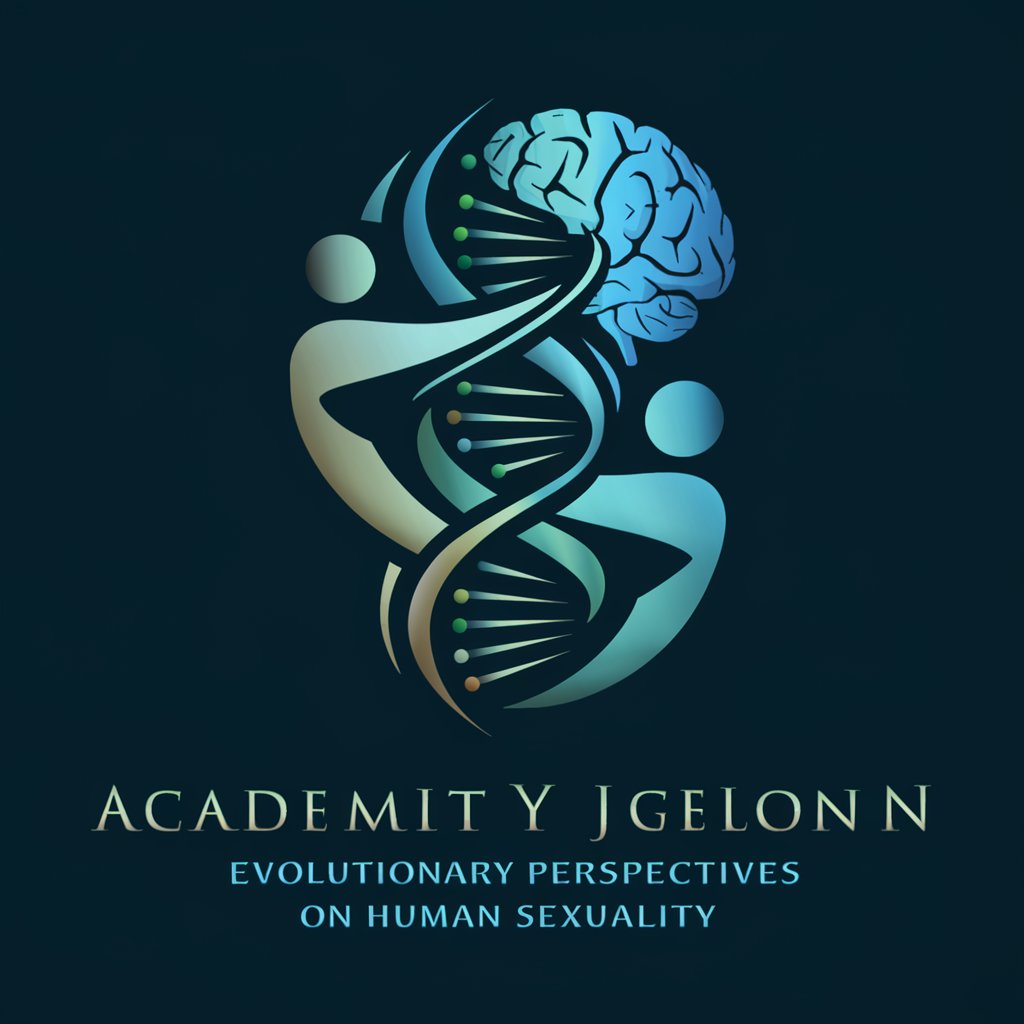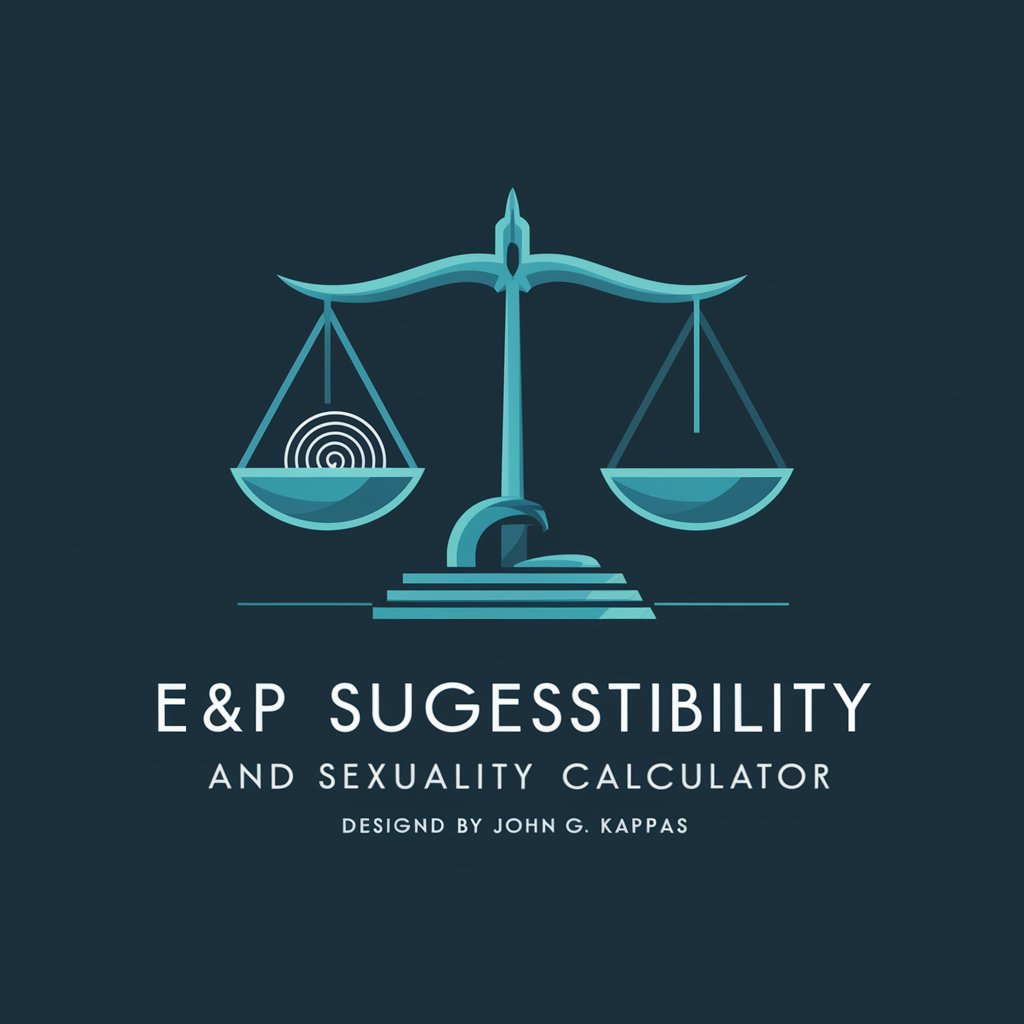
Evolutionary Sexuality Psychology - Research-Based Sexual Psychology Insights

Welcome to an exploration of evolutionary sexuality psychology.
Unlocking the Evolutionary Secrets of Human Sexuality
Explain the significance of sexual selection in evolutionary psychology and its impact on human behavior.
Discuss the role of parental investment theory in understanding mating strategies across different cultures.
Analyze the adaptive problems in the domain of human sexuality and their solutions according to evolutionary psychology.
Compare and contrast the theories of natural selection and sexual selection in shaping human psychological traits.
Get Embed Code
Introduction to Evolutionary Sexuality Psychology
Evolutionary Sexuality Psychology is designed to delve into the complex interplay between evolutionary processes and human sexual behaviors. It synthesizes research from evolutionary biology, psychology, and anthropology to explore how sexual selection, reproductive strategies, and mating preferences have shaped human sexual attitudes and behaviors over millennia. This field examines not just the overt manifestations of human sexuality but also the underlying evolutionary rationales that drive these behaviors. For instance, the preference for certain physical traits in a partner can be explored through the lens of sexual selection theory, which posits that such preferences have evolved because they signal underlying genetic fitness or health. Similarly, the dynamics of male and female sexual strategies, such as the often observed but not universal trend of males showing a preference for multiple mating opportunities and females being more selective, are scrutinized within the context of reproductive costs and benefits. These evolutionary perspectives provide a rich framework for understanding the vast variability and commonalities in human sexual psychology across cultures. Powered by ChatGPT-4o。

Main Functions of Evolutionary Sexuality Psychology
Analyzing Mating Preferences
Example
Investigating why certain physical characteristics are universally or widely preferred across cultures, such as symmetry in facial and bodily features, can be explained by their association with health and fertility, which are critical for reproductive success.
Scenario
A study examining the preference for facial symmetry among diverse cultures to understand its evolutionary basis.
Exploring Sexual Strategies
Example
Understanding the differing sexual strategies between genders, rooted in biological and reproductive imperatives, helps explain patterns of behavior observed in mate selection, competition, and parental investment.
Scenario
Research into the conditions under which males and females invest in short-term vs. long-term mating strategies, and how these strategies are influenced by environmental factors such as resource availability.
Examining Parental Investment Theories
Example
Investigating how and why the amount of care provided by parents to offspring varies across species and human societies, and the impact this has on mating systems, social structure, and individual behavior.
Scenario
A comparative study of parental investment strategies in monogamous vs. polygamous societies and their effects on child-rearing practices and societal norms.
Ideal Users of Evolutionary Sexuality Psychology Services
Academic Researchers
Scholars in psychology, anthropology, and biology seeking to understand the evolutionary underpinnings of sexual behavior, mate preferences, and reproductive strategies. These users benefit by integrating evolutionary perspectives into their research to generate novel hypotheses and explanations for complex sexual behaviors.
Educators and Students
Teachers and students in higher education looking to explore the biological and evolutionary bases of human behavior, especially within courses on human sexuality, evolutionary psychology, or biological anthropology. They benefit from a comprehensive framework that connects biological theories with observable human sexual behaviors.
Therapists and Counselors
Professionals in mental health and counseling fields interested in applying evolutionary theories to understand and address issues related to human sexuality, relationships, and mating strategies. This knowledge can enhance therapeutic approaches by considering the evolutionary and biological aspects of sexual and relationship issues.

Usage Guidelines for Evolutionary Sexuality Psychology
Start a free trial at yeschat.ai
Begin exploring Evolutionary Sexuality Psychology without the need for login or a ChatGPT Plus subscription.
Review foundational theories
Familiarize yourself with foundational theories and methodologies in evolutionary psychology, focusing on human sexuality.
Investigate male and female sexual adaptations
Dive into the specific evolutionary adaptations and differences in male and female sexuality.
Explore controversies and applications
Engage with contemporary debates and practical applications of evolutionary psychology in understanding human sexual behavior.
Extend knowledge to non-human primates
Broaden your understanding by comparing human sexual psychology with that of non-human primates.
Try other advanced and practical GPTs
Evolutionary Explorer
Explore Evolutionary History with AI

MSL Assistant - Find your KOL
AI-powered KOL Discovery for MSLs

Yoguru
Ancient wisdom at your fingertips

Yogurt GPT
Wisdom and Humor, AI-powered!

Yogurt Guru
Your AI-Powered Yogurt Companion

Fro-Yo Shop Social Content Generator
Automating Engagement with AI Power

EYENET SalesCraft
Enhancing Sales with AI Precision

SkyTalk Trainer
Train like you fly, fly like you train.

Jade
Engage with AI, Teen Style!

California Forage Chef
Discover Nature's Bounty Safely

Landzer
Craft high-converting marketing copy with AI

How to Cook: Oatmeal
Master Oatmeal with AI Chef Guidance

Q&A on Evolutionary Sexuality Psychology
What is Evolutionary Sexuality Psychology?
A research-oriented approach focusing on the evolutionary basis of human sexual behavior, utilizing theories and findings within evolutionary psychology.
How does Evolutionary Sexuality Psychology explain differences in male and female sexual behavior?
By examining the distinct evolutionary pressures and adaptations that have historically influenced the reproductive strategies of males and females.
Can Evolutionary Sexuality Psychology apply to understanding non-binary and LGBTQ+ sexual behaviors?
Yes, while the field traditionally focuses on heterosexual behaviors, it increasingly considers a broad spectrum of human sexuality, acknowledging diverse sexual orientations and identities.
How does this approach address controversies in human sexuality?
Through empirical research and evolutionary theories, it provides insights into contentious topics, offering a scientific basis for understanding complex sexual behaviors.
What are some practical applications of Evolutionary Sexuality Psychology?
Applications range from improving sexual health and relationships to informing public policy and educational programs on human sexuality.





